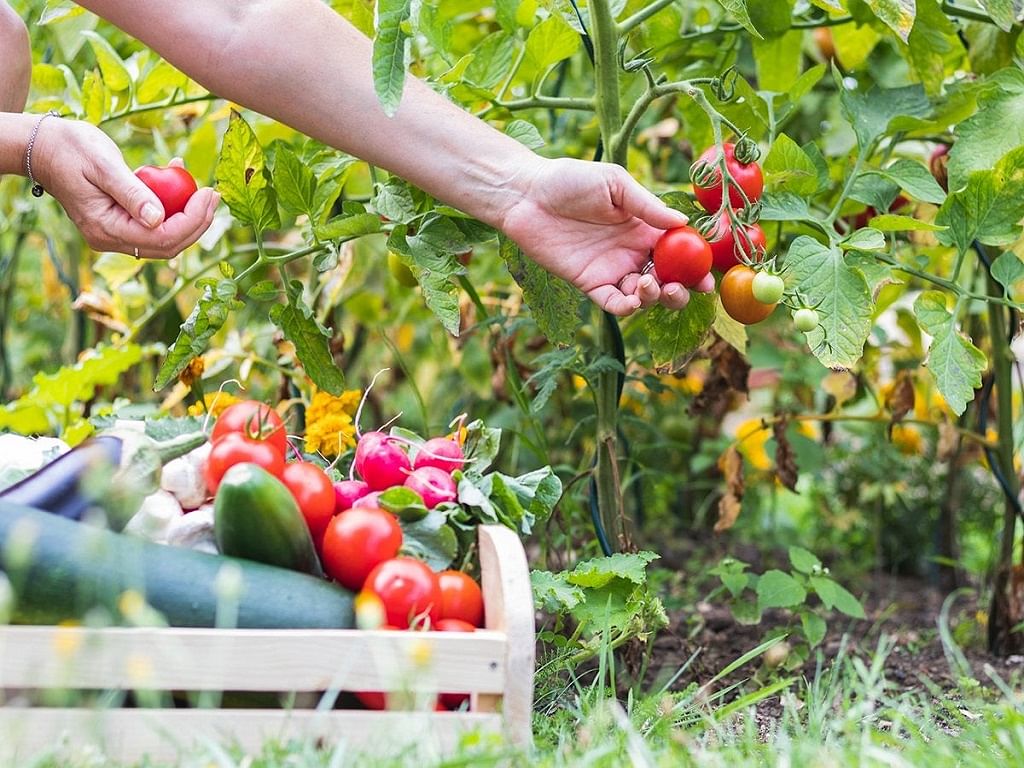
We all want to eat fresh and organic food but can’t rely on the fruits or vegetables available in the market as it contains lots of chemicals. We want to grow our own vegetables or fruits but due to lack of space, we are not able to do so.
Now the question is how to produce vegetables if you have little to no space with full sun exposure. Read on to know the answer!
Container Gardening
A container garden with vegetables and fruits can be the best option for you if you only have a tiny outside area, such as a balcony, shared courtyard, or small yard.
One of the best things about container gardening is that, with the correct circumstances and enough space for an appropriate-sized container, you can produce practically any vegetable and a wide variety of fruits.
Even little fruit trees or bushes may be grown successfully using this method with the correct amount of sunlight exposure and irrigation system.
Container gardens are also extremely space efficient as every grain of soil in your container will count for fruit and vegetable production - no growing space will be wasted underfoot as you care for and harvest your plants.
Vertical Gardening
Vertical Gardening is a special kind of urban gardening suitable to small spaces, particularly for decorating the walls and roofs in various styles. This alternative gardening technique broadens the possibilities for growing plants in a vertical environment. Vertical vegetable gardening saves space, helps avoid pests and disease, makes harvesting easier, and adds beauty to your garden.
Vegetables you can grow easily through Vertical Gardening
Tomatoes
Growing tomatoes vertically keeps the plant upright, and prevents the stems from breaking from heavy fruit or wind. In addition to keeping the leaves off the ground, tomato trellising also helps prevent disease. Fruit that has been lifted off the ground is also simpler to harvest.
Peas
Peas can survive in lower temperatures and are frequently the first crop of vegetables sown in the spring garden. Pea tendrils find the trellis and climb gladly, frequently without assistance, as high as you'll allow them.
Cucumber
Vertically planted cucumbers are more healthy, straighter, and easy to harvest. When the cucumber plant starts to develop, guide the vines through the trellis so that the tendrils may climb. Trellising the plants also gives other crops space to grow as cucumber vines can quickly take over a raised bed.
Raised beds and square foot gardening
Raised beds may be a terrific method to maximize space and labour if your gardening area is large enough for them. Raised beds not only allow for more plants per square foot but also drastically minimize the need for weeding. In addition, it makes it much simpler to pull weeds throughout the season, which is great for your back. if the beds are carefully spaced, even gardening from a wheelchair becomes an enjoyable possibility in small spaces.
Keyhole Gardening
Keyhole gardens are designed to maximize space by eliminating the need for footpaths as found in traditional row gardening or with raised beds. The design is also intended to be draught-resistant and deliver nutrients via compost throughout the entire growing season.
Keyhole gardens are a raised-style beds that take the rough shape of a circle with a "keyhole" shaped path allowing access to the entire garden. In the center of the circle is a vertical tunnel that houses many layers of compost. As the compost breaks down it delivers nutrients and moisture directly to the bed.
Windowsill Gardens
Growing food plants indoors on a windowsill is a simple, low-space solution for crops like lettuce and herbs that are frequently harvested. Any gardener may extend the growing season by potting up some herbs and growing them indoors as long as there is enough light and water. However, windowsill gardening is not just for gardeners with little space. You can even grow vegetables indoors If an area inside your home receives enough sunlight.
















